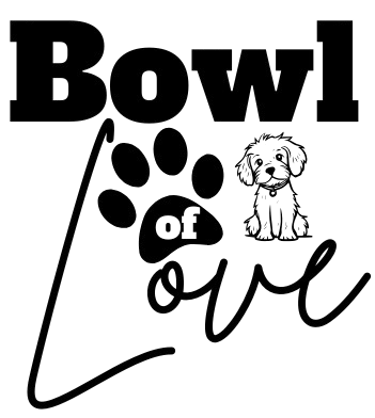Why Soy in Dog Food Can Be Harmful
Understanding the Health Risks for Your Pet
DOG NUTRITION TIPS
9/29/20254 min read
At Bowl of Love, we sometimes recommend trusted products. If you choose to purchase through our links, we may earn a small commission at no additional cost to you. Thank you for supporting our mission to bring healthier food choices to dogs everywhere.
Soy appears in many commercial dog foods as a protein source and filler, but this common ingredient can pose several health risks for canines. While manufacturers often use soy because it's inexpensive and readily available, dogs process this plant protein differently than humans do.
Soy contains compounds that can interfere with hormone production, cause digestive issues, and trigger allergic reactions in sensitive dogs. These problems stem from soy's natural properties and how canine digestive systems handle plant-based proteins.
Understanding the specific ways soy affects dogs helps pet owners make informed decisions about their dog's nutrition. The risks range from immediate digestive discomfort to long-term hormonal imbalances that can impact a dog's overall health and development.
Primary Reasons Soy in Dog Food Can Be Harmful
Soy presents several health concerns for dogs when included in their diet. The most significant issues involve allergic reactions, digestive complications, and interference with essential nutrient absorption.
Potential Allergic Reactions in Dogs
Soy ranks among the top eight allergens affecting dogs. Food allergies develop when a dog's immune system mistakenly identifies soy proteins as harmful substances.
Symptoms typically appear as skin irritations including excessive scratching, red patches, and hot spots. Dogs may also experience chronic ear infections that recur despite treatment.
Gastrointestinal signs include vomiting and diarrhea. Some dogs develop respiratory symptoms like coughing or wheezing after consuming soy-containing foods.
Severe reactions can lead to anaphylaxis, though this occurs rarely. More commonly, dogs experience chronic inflammation that affects their overall health and comfort levels.
For the cleanest dry food for dogs we found, try Instinct Raw Boost.
Digestive Issues Associated With Soy
Dogs lack sufficient enzymes to properly break down complex soy proteins and carbohydrates. This enzymatic deficiency leads to incomplete digestion and fermentation in the intestines.
Gas production increases significantly when undigested soy reaches the colon. Bacterial fermentation creates excessive flatulence and abdominal discomfort.
Loose stools or diarrhea frequently occur in dogs consuming soy-based diets. The high fiber content in soy can overwhelm sensitive digestive systems.
Some dogs develop chronic digestive upset characterized by irregular bowel movements, stomach gurgling, and decreased appetite. These symptoms often persist until soy is removed from the diet.
Adverse Effects on Nutrient Absorption
Soy contains natural compounds called phytates that bind to essential minerals. These anti-nutrients prevent proper absorption of zinc, iron, calcium, and magnesium in the digestive tract.
Mineral deficiencies can develop over time when dogs consume soy regularly. Zinc deficiency affects skin health and immune function, while iron deficiency can lead to anemia.
Soy also contains enzyme inhibitors that interfere with protein digestion. This interference reduces the bioavailability of amino acids necessary for muscle maintenance and growth.
The isoflavones in soy may disrupt hormone balance in some dogs. These plant compounds can mimic estrogen and potentially affect reproductive health and thyroid function.
Additional Health Considerations Related to Soy
Soy contains isoflavones that can mimic estrogen in dogs' bodies, potentially disrupting normal hormone balance. These compounds may also interfere with thyroid hormone production and metabolism.
Hormonal Disruption and Phytoestrogens
Soy contains high levels of isoflavones, particularly genistein and daidzein. These compounds are phytoestrogens that can bind to estrogen receptors in dogs.
Male dogs may experience reduced testosterone levels when consuming soy regularly. This hormonal interference can affect reproductive health and development.
Female dogs can face disrupted estrus cycles. The phytoestrogens may cause irregular heat cycles or false pregnancy symptoms.
Puppies are particularly vulnerable during development. Their endocrine systems are still forming, making them more susceptible to hormonal disruption from soy consumption.
Concentration matters significantly. Commercial dog foods containing soy as a primary protein source deliver higher doses of these compounds than occasional treats.
Impact on Thyroid Function
Soy isoflavones can interfere with thyroid peroxidase enzymes. This interference reduces the thyroid's ability to produce essential hormones T3 and T4.
Dogs with existing thyroid conditions face increased risks. Soy consumption can worsen hypothyroidism symptoms like weight gain and lethargy.
Iodine absorption becomes compromised in the presence of soy compounds. Since iodine is crucial for thyroid function, this creates a secondary pathway for thyroid disruption.
Goitrogens in soy can cause thyroid gland enlargement. This condition forces the thyroid to work harder to maintain normal hormone levels.
If you want to try a one-ingredient treat for your dog, you can't beat this delicious salmon treat!
Concerns About Genetically Modified Soy
Most commercial soy used in pet food comes from genetically modified crops. These varieties are designed to withstand heavy pesticide applications.
Glyphosate residues remain present in GM soy products. Dogs consuming soy-based foods may experience chronic low-level exposure to this herbicide.
The modification process can alter protein structures in soy. These changes may increase the likelihood of allergic reactions in sensitive dogs.
GM soy often contains higher concentrations of certain compounds. This intensification can amplify the negative effects of phytoestrogens and other problematic substances.
Check out our list of resources for products with no soy for your best friend:




Connect
Reach out for support and inquiries.
Subscribe
contactbowloflove@gmail.com
© 2025. All rights reserved.
